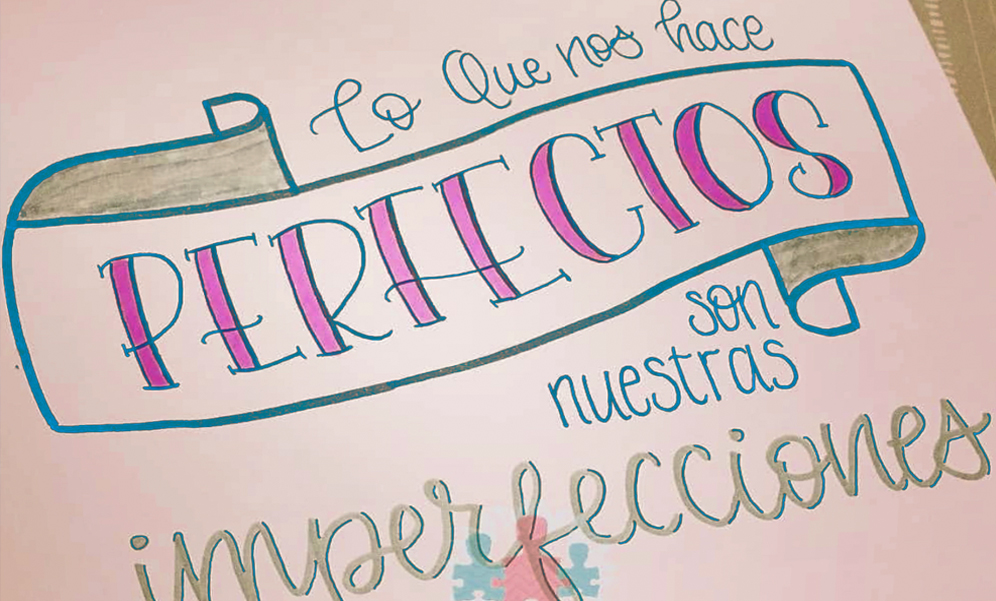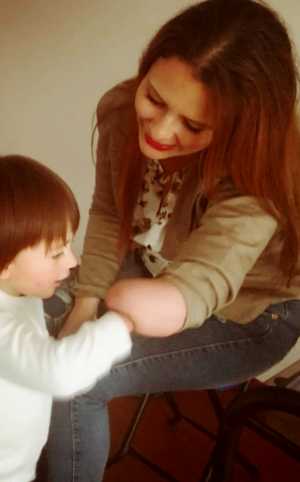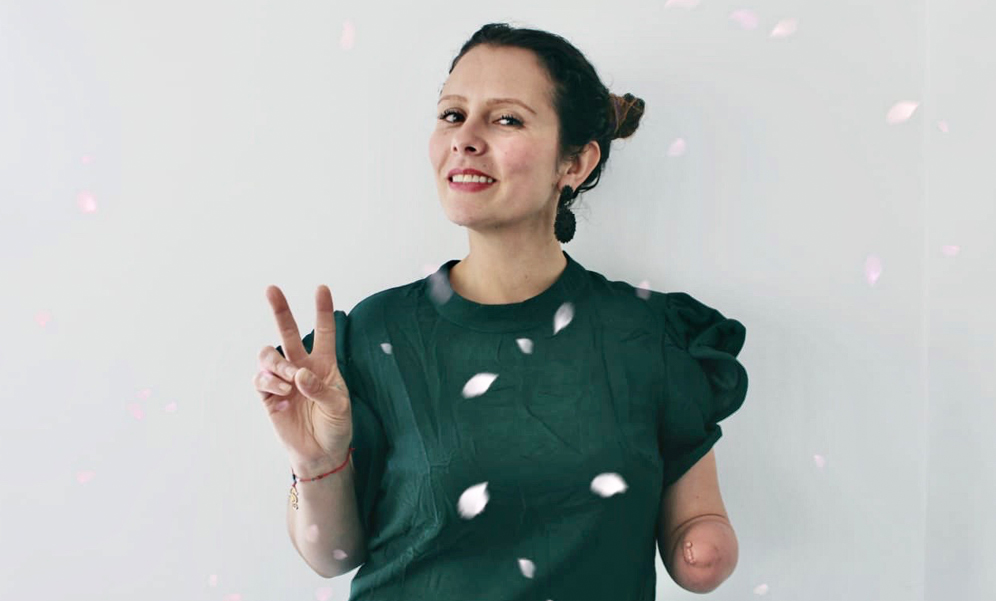In many opportunities when we are immersed in the mass consumption our society offers, we do not realize that we are unique beings.
As a direct result we can‘t see ourselves as the models of magazines or film artists. This causes psychological problems in many young people, either because the height does not match or the size or skin color. We have heard this speech many times.
What is Dysmelia?
There are people who look differently physically, either because they lack a limb or because their body is for malformed. These people are constantly attacked throughout their lives simply for suffering from dysmelia.

Dysmelia is a word that few people know. But, we can recognzie very easily when someone suffers form from this abnormal congenital process, since it is characterized by the absence or graves of malformations of the extremities of the body. This makes them different from the rest.
This disease may be accompanied by other complications such as: cardio, cutaneous, gastrointestinal or genitourinary vascular malformations, produced by an abnormal metabolism during embryonic development.

Most of these secondary child malformations take place when a pregnant women is exposed to thalidomide, but there are other toxic substances that can also cause limb malformations (folic acid antagonists, methotrexate, vitamin A and derivatives, benzodiazepines, dicumarinic anticoagulants, lithium …).
Dysmelias are considered to be a part of Rare Diseases with different types and degrees of congenital damage that affect approximately 5 infants in 10,000 people.
Due to all of this, people who have Dysmelia suffer constant discrimination.
There are three types of this condition, they are
The Amelias: Child absences from the extremities where the arms and legs are articulated directly on the trunk.
The Peromelia: It consists of the congenital shortening of the extremities in the form of stumps.
The micro melia makes reference to the presence of Small Extremities.
Treatment of dysmelias
There is currently no specific treatment. The interdisciplinary rehabilitation approach with continued family in neurorehabilitation is the basis for achieving the highest level of independence in daily activities for people affected by dysmelias.
In many cases they will be patients who will require specialized surgical interventions by the neuro-orthopedics team and the adaptation of prostheses, as the child grows.
So, the Imperfectly Perfect Colombian foundation was created with the purpose of supporting these people at all levels.
A short view of Vanessa Gómez Grisales life
Vanessa has had a difficult life. She suffers from dysmelia (lack of half an arm), had a childhood full of many shortcomings, the death of her mother when she was a girl (12 years old) among other events such as becoming a young mother, led to a strong depression.

When this happened, it was the moment that changed her life forever. She soon realized that people with dysmelia in most cases acquire psychological and psychiatric disorders that often lead to death.
Vanessa, tried taking her own life. Luckily she failed. Her life perspective changed and she managed to find her life purpose.
She became the founder of the Imperfectly Perfect Foundation in 2016. Vanessa is also the spokeswoman for her organization and her goal is to become a great speaker in order to spread the work of her organization in Colombia and then in the rest of the world.
Imperfectly perfect organization
Chatting with this valuable and inspiring woman gave me the opportunity to put her work on display and how Imperfectly Perfect helps others. I learned how she chose the name, how they channel patients, their goals and how they are financed.

When someone dedicates their life to helping others is a very exemplerary act. Keeping in mind that a person with a disability is and remains a human being is something we all have to do.
Discrimination against these people should not exist. Unfortunately it does and for that reason it is good that foundations such as this one are created.
A foundation where their needs are channeled, especially psychically and psychologically. They also become a constant support and means of social contact by inspiring each other.
They are always helping them become successful people in all areas.
For Vanessa, the meaning of these two words, Imperfectly Perfect, are: nobody is perfect in the face of the false stereotypes that society imposes on us, but we are perfect in spirit because we are children of a supreme God. That is why he decided to name his organization.
Their Work
The foundation works with volunteers who are divided among the seven projects that help patients and their families, as support from family members is important to carry out this integral work.
These projects try to cover all the needs patients may have. Help is implemented so that they can find happiness, since one of the purposes of this organization is to teach them how to find their skills or what they are good for and support them to develop these skills.

Workshops are held to stabilise the spiritual and emotional part, because they believe it is the most important part to heal.
For the past eight years Vanessa has searched for people through social networks and now the Facebook Fan Page is moving a lot. Thanks to this, she doesn’t need to search anymore because people reach out to her.
If you are a person who suffers from dysmelia, maybe you care how to access or what is the process to get help from Imperfectly perfect. Well, very easy, you only have to get in touch with them if you live in Colombia and they will visit you to check your situation and thus start the process. Its doors are always open.
Their Goals
Imperfectly Perfect aims to be the institution that welcomes people with the condition of dismelia. They also want to show Colombia and the world that people suffering from this condition are worthy human beings. They are happy, with duties, responsibilities and rights, with a physical difference, but with virtues and intelligence that magnify an entire society.

To achieve this goal Vanessa has already approached the educational world, giving informative talks. She can say that it has been a slow but precise approach, but she has no doubts.
They will become a great example and people with dysmelia will be visible. However, they have also been denied spaces, since discrimination is the order of the day.
One of the topics she brings to schools is diversity. Why to understand disability is necessary to know that we are all different, whether by culture, race, colors, tastes, knowledge and this is something that many people do not accept. Acceptance for Vanessa is something that should be taught from early childhood.
Perfecting their struggle
Financially, unfortunately, they do not have a stable fund, so the collaborators are all volunteers, they need donations to reach a balance and cover administrative expenses.

They accept donations of any amount. Vanessa says that in Colombia the government has very strict and controlled or focusing donations, always aware and vigilant.
In my experience the contact is very fast and attentive. Many times we cannot cooperate in a monetary. However, we give a like or visit it’s webpage so that search engines are better positioned and easier to find for people who need it.
We must never forget the lesson that Vanessa is teaching us. Diversity is good and noble. We are all valuable human beings and in many ways we can develop our skills to be useful and productive. The differences should not be a cause for mockery and separatism, but for strength and union, since each person is a link in the chain we call society.


